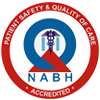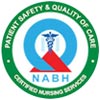
Tips For Preventing Heart Problems In Kids
November 01, 2023
Prevention of Heart Disease Starts in Childhood
You may think of heart disease as a problem for adults, not for your young children. Diet and exercise habits started in childhood can start a lifetime of heart health . . . or a lifetime of heart damage. Some of the causes of adult heart disease that start in childhood and can be prevented are:- Obesity
- Buildup of plaque (or fat deposits) in the arteries
- Unhealthy changes in cholesterol levels
- High blood pressure
- Diabetes
- Exposure to cigarette smoke
- Lack of physical exercise (sedentary lifestyle)
- Unhealthy diet
Healthy Food, Healthy Hearts
A balanced diet is important for children and teens, not just to prevent heart disease, but also to encourage healthy growth and development. A diet that prevents heart disease contains two important parts. The first is keeping daily calories at the right level. Eating too many calories can cause weight gain. This is hard on the heart. The second is limiting fat. The USDA recommends that children limit the amount of fats — especially saturated fats — that they eat. Saturated fat is solid at room temperature.Here Are Guidelines For Creating A Heart-healthy Childhood Diet:
- Breastfeed infants as long as possible. Aim for a full year, even as you introduce solid foods.
- Feed your child mostly fruits and vegetables, with whole grains, lean protein, and low-fat dairy.
- Watch portion sizes. The recommended daily amounts of healthy foods for children are:
- 2 ounces of lean protein (fish, chicken) every day for children between 2 years and 3 years old, 3 ounces to 4 ounces for children 4 years to 8 years old, and 5 ounces to 6 ounces for children 9 years to 18 years old
- 2 cups of low-fat dairy for children under 8, and 3 cups for children 9 years to 18 years
- 1.5 cups of fruit
- 2.5 cups of vegetables
- 6 ounces of whole grains
- Don't eat fast food too often. If you do eat out, make healthy choices (like a grilled chicken sandwich instead of a bacon cheeseburger) and keep portion sizes reasonable.
- Don't give your children sugary drinks. Instead, serve water and low-fat milk.
- The American Academy of Pediatrics advises children younger than 1 year of age should not be given any fruit juice. This is because it does not have any nutritional benefit for babies They also recommend no more than 4 ounces of 100% juice for children ages 1 to 3 years, no more than 4 to 6 ounces for children ages 4 to 6, and, no more than 8 ounces of juice per day for children age 7 and older.
- Total fat should be no more than 30% to 35% of total daily calories for children 2 years to 3 years old and 25% to 35% of calories for those up to 18 years old. Choose healthier fats: the mono- and polyunsaturated fats.
- Choose whole grains like brown rice over refined grains like white rice for added nutrients and fiber.
- Don’t require children to finish everything on their plate. Allow children to tell you when they feel full and are done.
Healthy Lifestyle, Healthy Heart
Many daily choices that children and teens make affect their heart disease risk. Here are some choices you can encourage your children and teens to make that will help protect their hearts:- Get about 60 minutes of moderate to vigorous physical activity most days of the week in childhood. This can be broken up throughout the day into 2 or more periods of activity.
- Since many kids trade being active for sitting in front of the television or a computer, keep screen time to less than 2 hours per day.
- Don’t expose your kids to cigarette smoke. Ban smoking in your house and car. Don't take your kids to places where people smoke cigarettes. If you smoke, quitting smoking can help you and your kids.
Know Your Family’s History
High blood pressure (hypertension) in kids often goes unnoticed due to a lack of symptoms. This condition is not present at birth but can be hereditary. Be sure to schedule your child’s annual well visits to ensure your child’s blood pressure is taken yearly and pay special attention to it if they have a family history.Recent Blogs
- Signs You Need to See a Doctor for Kidney Pain
- What Is A Nuclear Radiologist
- GUIDE TO NUCLEAR MEDICINE IMAGING
- Nuclear Medicine In Oncology
- Advancements In Nuclear Medicine Technology
- The Role Of Radiotracers In Nuclear Medicine
- An Introduction To Nuclear Medicine
- Cardiac Catheterization: When Is It Required?
- Types Of Pediatric Cardiology Test
- Tips For Preventing Heart Problems In Kids
- Advances In The Diagnosis Of Congenital Heart Disease In Children
- Signs Of Heart Problems In Children
- What Is A Pediatric Cardiologist?
- Understanding Congenital Heart Defects In Children
- Pediatric Cardiac Surgery: Types And Considerations
2023
- December (6)
- November (8)
- Cardiac Catheterization: When Is It Required?
- Types Of Pediatric Cardiology Test
- Tips For Preventing Heart Problems In Kids
- Advances In The Diagnosis Of Congenital Heart Disease In Children
- Signs Of Heart Problems In Children
- What Is A Pediatric Cardiologist?
- Understanding Congenital Heart Defects In Children
- Pediatric Cardiac Surgery: Types And Considerations
- September (7)
- Lifestyle Changes To Prevent Diabetes
- New Innovative Advances In Diabetes Treatment
- The Link Between Obesity And Diabetes
- Monitoring Blood Sugar At Home
- The Importance Of Regular Diabetes Check-ups
- Understanding Diabetes: Types, Causes, Symptoms & Treatment
- Lower Blood Sugar Naturally: Managing Blood Sugar Through Diet
- August (8)
- What’s The Difference Between A Neurologist And Neurosurgeon?
- Dementia: Causes, Symptoms, Diagnosis And Treatment
- Seizures: Causes, Symptoms, Diagnosis And Treatment
- Epilepsy: Causes, Symptoms, Diagnosis And Treatment
- Is Autism A Neurological Disorder? Causes, Symptoms & Diagnosis
- Pediatric Neurology: Neurological Disorders In Pediatrics
- What Are The Most Common Neurological Disorders?
- Types Of Neurosurgery: Overview, Procedure & Costs
- July (11)
- Types of Cardiac Stents
- Types of nuclear cardiology tests
- What Are the Different Types of Heart Surgery and Their Purposes?
- What is the difference between Cardiologist and Cardiothoracic Surgeon?
- What is the difference between Invasive, Non Invasive and Interventional Cardiology?
- What are the different Cardiology Subspecialties?
- What Are The Do’s And Don’ts For The Embryo Transfer Process?
- 5 Myths Over IVF
- Superfoods That Can Boost Your Chances of IVF Success
- What Is Male Infertility? Treatments For Male Infertility
- Causes of Male and Female Infertility
- April (4)
- March (1)
-

Share with us
Click Here -

Organ Transplantation
Click Here
Copyrights © 2024 PSG Hospitals. All Rights Reserved.








